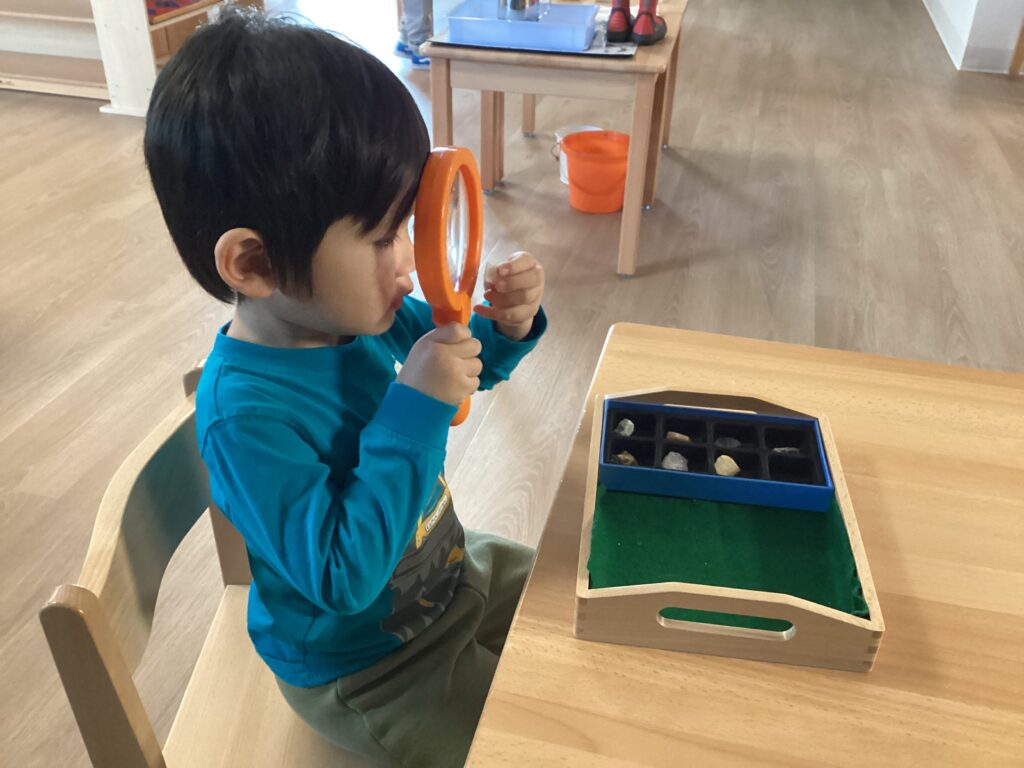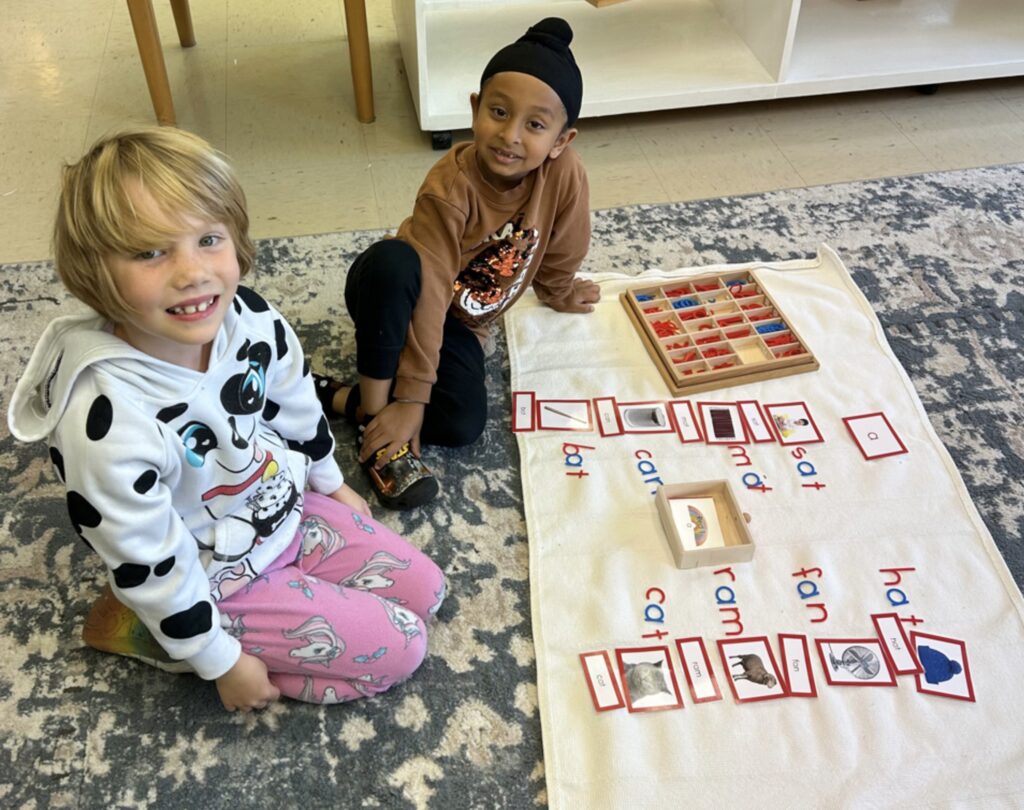A unique feature of each of these planes is that students are naturally drawn to elements of their environment. Dr. Montessori described this as “a child’s different inner sensibilities that enable him to choose from his complex environment what is suitable and necessary for his growth. They make the child sensitive to some things but indifferent to others. When a particular sensitiveness is aroused in a child, it is like a light that shines on some objects but not on others making of them his whole world”. (The Secret of Childhood, p.42)
The Early Stages (0-6)
In the early stages (0-6), the sensitive period is mastery of language, exploring the world through senses and interest in manipulating small objects in order to master the environment.

The Second Phase (6-12)
At the second phase (6-12), the sensitive period includes seeing the justice and fairness in all situations, developing emotional language and cultivating friendships. Becoming self-aware of being part of a greater social order is also prevalent.

Phase Three (12-18)
In phase three (12-18), students are sensitive to social dynamics. Identifying with a group, testing and defining boundaries are observable characteristic of this stage. Being self-regulated is fine-tuned at this point in development.
The Final Stage (18-24)
In the final stage (18-24), involves making life plans, finding a place in the world and integrating lessons learned into developing their character.
At all stages, the freedom to choose, move and learn independently are tantamount to the level of progress that is made towards becoming a self-determining individual.